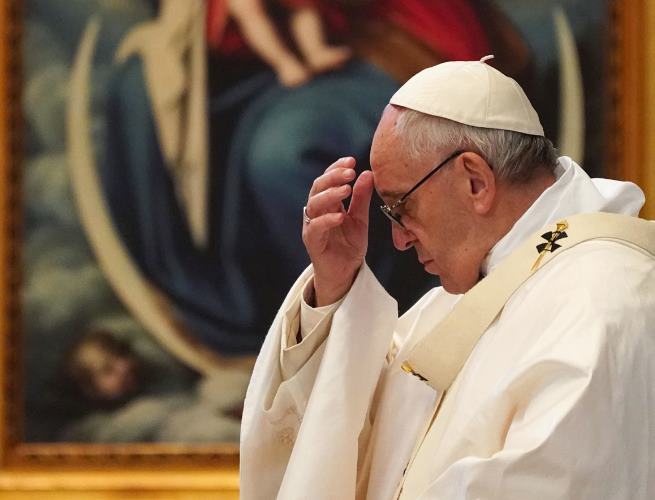|
Pope Francis now faces a terrible dilemma over Chile
By Christopher Altieri
With their resignation en masse late last week, the bishops of Chile have put Pope Francis between a rock and a hard place. Basically, he has three options: accept all of them; accept some of them; accept none of them. If he accepts them all, he leaves the Church in Chile headless, while owning utterly every awful thing that may yet emerge as the crisis unfolds – there is a great deal more in the way of awful things that must come out, if the Church in the country is to recover – and the Chilean crisis is far from over. If he accepts some, his every decision will be scrutinised, and he is bound to make mistakes – and if he takes his time and does it right, as he ought to, the Church will remain paralysed in the meantime and the evil men he has heretofore at least tacitly (though not always tacitly) supported will have time and opportunity to maneuver. A few – like bishops Juan Barros of Osorno, Horacio Valenzuela of Talca, and Tomislav Koljatic of Linares – are no-brainers. These men were protégés of the disgraced celebrity paedophile priest, Fernando Karadima: they were just the sort of men abusers seek systematically to insinuate into power structures for their own protection and advancement. Others are not. If he accepts none of them, he will have to try some of them. Those trials will presumably take place under the procedural rules laid out in the Apostolic Letter motu proprio, As a Loving Mother, though the dispositions given in that letter remain essentially untried. There will be a learning curve. There will also need to be significant investment in the Vatican court system, which is already overloaded, underfunded, and not exactly bursting at the seams with enthusiasm for the work. Confidence in the ability of the Vatican to administer justice is therefore also very low, indeed. In short, none of those is a good option – and one gets the impression the Chilean bishops knew exactly what they were doing when they left their letters with the Pope. Even if one were to accept some or all the resignations as a quick and dirty stopgap, and immediately move to study the structural reform that everyone agrees is needed, the fact remains that there is virtually no agreement on what that structural reform ought to look like. If it is to have the popular support it will need in order to be even minimally credible from the outset, whatever emerges from the study of the reform question cannot be the result of the top-down approach that Francis has taken to every problem he has really tried to address. With the Old Guard in place, consultation will be tainted. With the Old Guard removed, there will be no one to direct and moderate the consultation, which must involve the whole People of God in Chile — the Christian faithful of every age and sex and state of life in the Church — if it is to have any hope of success. With the Old Guard replaced, there will likely be too many figures too new to the halls of influence in the Church and unacquainted with the deep grammar of ecclesiastical power to be reliable partners. One possible workaround could be a sort of ecclesiastical receivership: An Apostolic Visitation with a broad mandate, to work with Apostolic Administrators appointed at the diocesan level. That alternative has its own inherent difficulties and potential pitfalls, most of which must be the subject of another essay. One thing, however, does bear mention here and now. Usually the appointment of new bishops is accomplished through a process that begins with the proposal from the Apostolic Nuncio of three candidates for a given see. In Chile, the Apostolic Nuncio is Archbishop Ivo Scapolo, whose role in the Barros Affair and in the broader Chilean crisis has received much critical attention and deserves much more and much closer scrutiny. In all this, however, there is one outstanding consideration, one giant red elephant in the room: Cardinal Francisco Javier Errázuriz, whose alleged mishandling of abuse — including alleged active coverup for Karadima — and position of trust and confidence as a member of the Pope’s hand-picked inner circle, have placed him at the very centre of the ongoing controversy. The Archbishop emeritus of Santiago de Chile, Cardinal Errázuriz is also a member of Pope Francis’s “C9” Council of Cardinal Advisers. Since he already has emeritus status, he did not submit a resignation along with the other bishops, and since the C9 is an extra-juridical “kitchen cabinet” of Pope’s men, he technically has no position from which to resign. That does not mean he may not be declared persona non grata. Even if he cannot be juridically removed or punished — and that is a big “if” — there is also no reason he needs to keep his red hat. That he has faced nothing harsher than a “no vacancy” sign put out for him at the Casa Santa Marta is unsatisfactory to many victims. “In my view,” abuse survivor Marie Collins told the Catholic Herald, “[Cardinal Errázuriz] should have been removed immediately from this position [on the C9] when the Pope received the details.” Collins was a founding member of the Pontifical Commission for the Protection of Minors, and served on the advisory body for three years, before resigning in frustration at the lack of progress (and even active resistance) within the Vatican. “Not clearly sanctioning him in any way would be indefensible,” she said, “and send the message that his cover-up and attitude are to be tolerated because of his position as a cardinal.”
|
.
Any original material on these pages is copyright © BishopAccountability.org 2004. Reproduce freely with attribution.
